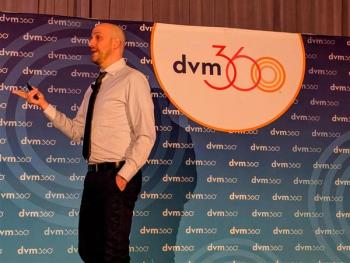
- August 2017
- Volume 1
- Issue 3
Will You Retire Rich or Poor?
The answer may depend largely on your level of financial literacy.
Selena Maranjian, a longtime writer for the financial services company The Motley Fool, recently presented a fascinating yet simple three-question quiz1 that two-thirds of a sample group couldn’t ace. (See The Three-Question Financial Quiz.)
Before you read any further, please take the quiz and write your answers somewhere — on a piece of paper, your cellphone, your tablet, your computer or even your hand. Just write them down somewhere so there is no confusion.
Rest assured that nobody will know. It will be our little secret.
Here are some statistics reported in the article.
- Only half of Americans aged 50 and older answered the first two questions correctly.
- Only one-third of Americans answered all three quiz questions correctly.
- Results were generally similar among the broader American population as well as people outside the country.
- Eighty-one percent of Americans with a high school degree couldn’t answer all three questions correctly.
- Fifty-six percent of Americans with college degrees didn’t get all three questions right.
- Answers were similar among people “in relatively rich countries with well-developed financial markets, such as Germany, the Netherlands, Switzerland, Sweden, Japan, Italy, France, Australia and New Zealand.”
- Performance was markedly worse in Russia and Romania.
The authors of the original study concluded that people who couldn’t answer the questions displayed “widespread financial illiteracy.” Because financial illiteracy is one of my (very few) pet peeves, I was very interested in this whole international socio-financial experiment. The questions were designed about a decade ago by Olivia Mitchell, a Wharton business school professor at the University of Pennsylvania and executive director of the Pension Research Council, and Annamaria Lusardi, a George Washington School of Business professor and academic director of the Global Financial Literacy Excellence Center.
“In a quest to learn more about wealth inequality, they’ve been asking Americans and others these questions for years, while studying how the results correlate with factors such as retirement savings. The questions are designed to shed light on whether various populations ‘have the fundamental knowledge of finance needed to function as effective economic decision makers,’” wrote Maranjian.
So, why should you care about the questions? “Because, not surprisingly, the more you know about financial matters and money management, the better you can do at saving and investing and the more comfortable your retirement will probably be,” continued Maranjian.
In case you were stumped by the questions, let me explain the correct answers.
Question 1.Suppose you had $100 in a savings account and the interest rate was 2 percent per year. After 5 years, how much do you think you would have in the account if you left the money to grow?
If you make 2 percent on $100, you will have $102 at the end of year one. During year two, you will still make 2 percent, but on $102. This is called compound interest. So you will have a bit over $104. During year three, you will still make 2 percent, but on $104, so you’ll have a bit over $106. And so on. So, for sure you will have more than $102, which means that answer A is correct.
Question 2.Is this statement true or false: Buying a single company’s stock usually provides a safer return than buying a stock mutual fund.
If you invest $1,000 in a single stock — say, Microsoft — your risk is high. If anything happens to Microsoft, you could lose a lot of money. However, if you invest $1,000 in a mutual fund, which contains dozens or hundreds of stocks — perhaps Microsoft, Apple, Coca-Cola and McDonald’s — your risk is lower because it’s spread over multiple companies. This has nothing to do with your return on investment or how much you’ll make. It has to do with diversifying, or not putting all your eggs in the same financial basket. So, answer B is correct.
(In reality, it’s a bit more complicated than that, because there are supersafe stocks and super-risky mutual funds, but let’s keep it simple for now.)
Question 3.Imagine that the interest rate on your savings account was 1 percent per year and inflation was 2 percent per year. After one year, how much would you be able to buy with the money in this account?
Say you make 1 percent on $100 you put in your savings account. At the end of year one, you’ll have $101 in your account. That’s what savings are for: to grow your money safely. But there is a silent thief that erodes your buying power every year — it’s called inflation. If inflation is two percent per year, you will physically have $101, but in reality you can buy only $101 minus 2 percent, or roughly $99. So, answer C is correct.
How Did You Do?
The three questions in this quiz are designed to test people on three basic principles of personal finance: compound interest, diversification and inflation. In other words: How does money grow? How does diversification reduce your investing risk? How does inflation silently shrink the value of your money over time?
Based on multiple conversations, I’ve concluded that many veterinarians, technicians and managers find these topics incredibly boring. That may be, but regardless of how you feel about the questions, whether you know the answers can affect your personal savings and investments year after year after year.
Here’s the conclusion of the study: People most likely to ace the quiz are affluent. Mitchell and Lusardi attribute one-third of America’s wealth inequality to “the financial-knowledge gap separating the well-to-do and the less so.” Poor financial knowledge leads to poor financial decision making, which leads to money wasted or lost, which leads to delayed or not-so-rosy retirement.
The solution? Educate yourself. It may not be sexy, but it could change your life.
Dr. Zeltzman is a board-certified veterinary surgeon and serial entrepreneur. His traveling surgery practice takes him all over eastern Pennsylvania and western New Jersey. You can visit his website at
References:
- Maranjian S. The simple 3-question financial quiz most Americans fail: can you pass it? The Motley Fool website. fool.com/investing/general/2015/03/10/the-simple-3-question-financial-quiz-most-american.aspx. Published March 10, 2015. Accessed June 26, 2017.
- Mitchell OS, Lusardi A. Financial Literacy: Implications for Retirement Security and the Financial Marketplace. Cambridge, UK: Oxford University Press, 2011.
Articles in this issue
over 8 years ago
The Benefits of Third-Party Financingover 8 years ago
The Five Pillars of Content Marketingover 8 years ago
Creating a Drama-Free Workplaceover 8 years ago
Roll Out the Mats and Bring on the Animalsover 8 years ago
The Right Help at the Right Timeover 8 years ago
Is Business Debt Consolidation Right for You?over 8 years ago
The Challenge of Perfectionism in the Veterinary Professionover 8 years ago
Advice Unleashed (August 2017)Newsletter
From exam room tips to practice management insights, get trusted veterinary news delivered straight to your inbox—subscribe to dvm360.






